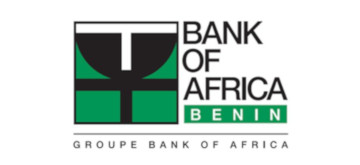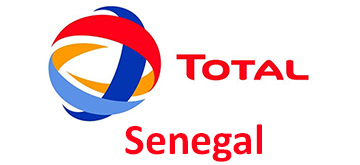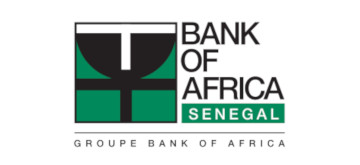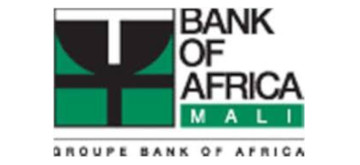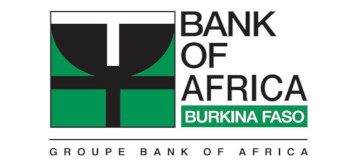Glossary
-
C
-
Common stock
Common stock
Common shares are issued by corporations and give their holders an ownership interest in the corporation. Holders of common shares are generally entitled to vote on certain decisions regarding the management of the issuing company (e.g. at the annual meeting of shareholders) and to receive dividends, if declared by the issuer. The common shares do not have a maturity date.
-
Custodial rights
Custodial rights
The custody fee is the amount charged by the account custodian to cover the costs of holding the securities and managing the account.
-
D
-
Dividend
Dividend
The portion of income that a company distributes to its shareholders over a fiscal year in proportion to the shares they hold.
-
E
-
Expected return
Expected return
Gain that an investor expects to withdraw
-
H
-
How does the market work?
How does the market work?
The trading of listed securities is done on a computerized medium.
-
How does a trading day work?
The trading of securities at the BRVM is done daily from Monday to Friday. The market opens at 9am and closes at 3:15pm.
-
How does the system process orders?
The system introduces the orders according to their typology while respecting their specificities. There are different types of orders:
-
The limit order
-
The order at the best limit
-
The market order
-
The stop order
-
How to determine the thresholds of variation?
The threshold of 7.5% variation is done in relation to the closing price of the previous day.
-
-
How to access the stock exchange?
How to access the stock exchange?
The realization of a transaction, whether it is a purchase or a sale, is carried out by placing a stock exchange order with an intermediary, also called a Management and Intermediation Company.
-
How to determine your investment strategy?
How to determine your investment strategy?
Before making your first investment, try to answer the following questions:
- How many stocks will you invest in?
- What percentage of your total investment will you allocate to each project?
- What types of projects are you interested in?
- Will you concentrate your investments in one sector or will you invest in all sectors?
- Take the time to choose your first investment
- Keeping track of opportunities
- Successful exit from the investment
- Learn from your experiences
-
How to invest in the stock market ?
How to invest in the stock market ?
- Aim for the long term
- Use uncommitted savings
- Don't put all your eggs in one basket: diversify your investments
- Be well informed
-
How to make your investment grow?
How to make your investment grow?
One of the golden rules followed by an investor is the diversification of his investments. It is therefore highly recommended to invest in different companies. The risk of losing your entire investment is almost zero.
-
I
-
Inflation
Inflation
Increase in the average price level of goods and services, which affects the purchasing power of consumers. It is measured by the consumer price index.e.g. Treasury bills, short-term bonds, guaranteed investment certificates, etc.
-
Information note
Information note
A detailed disclosure document that an issuer must produce in order to offer securities (e.g., stocks or bonds) to the general public. The purpose of the Information Statement is to provide investors and their representatives with information to assist them in making informed investment decisions. It must set forth fully, fairly and clearly all material facts relating to the securities to be issued. It must also disclose any material facts that may affect the value or price of the security being distributed.
-
Interest
Interest
The amount that a borrower must pay to an investor in return for the amount loaned.
-
Interest rate (nominal interest rate)
The percentage of interest
The percentage of interest payable on a debt, usually expressed on a 12-month basis. For example, a loan of XOF 1,000 francs bearing 6% interest will yield XOF 60 francs in interest..
-
ISIN code (International Securities Identification Number)
ISIN code (International Securities Identification Number)
The ISIN code is the international identification number assigned to each security. The ISIN code is assigned to securities to allow for clear settlement and clearing procedures. The ISIN code is a twelve-character alphanumeric code whose first two letters identify the country in which the security was issued (for example, CI for Côte d'Ivoire).
-
Issuers
Issuers
A person who issues or proposes to issue a security in return for capital raised from the public. This person is usually a legal entity, such as a company or organization, or a state. An issuer solicits money from investors in order to improve its financial position, carry out projects or develop new markets. In compensation for the amount of money invested, the investor receives a security, which may be a publicly traded stock or a bond, among others
-
L
-
Life Income Fund (LIF)
Life Income Fund (LIF)
Tax shelter that allows to defer the tax on the income of the investments that are placed in it. The money that is invested in a LIF often comes from
-
Liquidity
Liquidity
An investment is said to be "liquid" when it can be converted to cash quickly and inexpensively. Money is the most liquid asset. The longer term an investment objective is, the less important liquidity is in the considerations.
-
M
-
Market capitalization
Market capitalization
The value obtained by multiplying the number of common shares of a company by the unit value of a share of that company on the stock market. For example, if ABC Company has 100,000 shares outstanding and these shares are currently trading on the stock exchange at XOF 1,000 each, the company's market capitalization is XOF 100,000,000.
-
Money Market
Money Market
The part of the capital market where short-term securities are traded,
-
Mutual funds
Mutual funds
Mutual funds are funds made up of money pooled by investors and managed on their behalf by an investment fund manager. The money is invested in various types of investments depending on the objective of the fund. These funds are not subject to any time limit.
-
N
-
Net worth
Net worth
It's your equity minus your debts.
-
O
-
Obligation
Obligation
Bonds are issued by governments and corporations. These are loans made by the investor to the issuer. The latter pays a fixed rate of interest to the buyer at a certain frequency and must repay at maturity a predetermined sum, which is called the "face value" and is usually in units of 10,000 FCFA.
-
Option
Option
A financial instrument that gives the holder the right to buy (call option) or sell (put option) an asset at a specified price for a specified period of time. The asset may be a common stock, commodity, currency or index (such as a stock market index) and its investment in the form of interest income, dividends or capital gains. As a general rule, the higher the expected rate of return on the investment, the higher the risk. The actual return may differ significantly from the expected return.
-
Over-the-counter market
Over-the-counter market
Market where securities that are not listed on the stock exchange are traded. It's a deal between brokers.
-
P
-
Pension Fund
Pension Fund
A pension fund is a plan to which an employer contributes, alone or with its employees, to provide retirement income to its members.
-
Portefolio
Portfolio
All investments (stocks, bonds, etc.) held by an investor for direct income or capital gain. A benchmark portfolio is a "typical" portfolio that measures the risk or performance of a managed portfolio.
-
Preferred Action
Preferred Action
Preferred shares are issued by corporations. They usually entitle the holders to receive a fixed dividend before dividends are paid to the holders of the company's common shares. In the event of dissolution of the Issuer, the holders will share in the remaining assets. With some exceptions, they have no voting rights.
. -
Price/earnings ratio
Ratio cours/bénéfice
Ratio cours/bénéfice Prix des actions ordinaires d’une société divisé par le bénéfice net par action gagnée au cours d’une période donnée. .
-
Price/earnings ratio
Price/earnings ratio
The price of a company's common stock divided by the net income per share earned during a given period.
-
Primary and secondary market
Primary and secondary market
The primary market is where securities are first issued. Not to be confused with the secondary market, where previously issued securities are traded from one investor to another, for example a stock traded on a stock exchange.
-
R
-
Risk
Risk
Risk is the degree of uncertainty associated with the expected return on an investment. It represents the possibility of getting a lower return than expected or of losing some or a lot of your capital .
-
Risk aversion
Risk aversion
Risk aversion is an indicator that qualifies the behavior of an investor in relation to his or her expectation of gain and fear of loss when making an investment choice. Thus, an investor can accept a low expectation of gain if he refuses any risk of loss (Prudent Profile), accept a moderate risk of loss to benefit from a slightly higher expectation of gain (Balanced Profile), or be prepared to suffer significant losses to hope for significant gains (Dynamic Profile).
-
S
-
Securities
Securities are securities, e.g. stocks, bonds, shares of incorporated entities as well as rights and warrants. .
-
Shareholder
Shareholder
The person, natural or legal, who holds common or preferred shares of one or more corporations.
-
Stock market index
Stock market index
A statistic that measures the evolution of the stock market and is frequently used as an indicator of economic conditions.
-
T
-
Treasury Bill
Treasury Bill
They are issued by the federal and provincial governments. These are loans made by the saver to the government. They are issued with a maximum maturity of 2 years on the money market.
-
Trust
Trust
The result of an act by which a person or company entrusts securities (bonds, stocks, etc.) to another person (trustee), who undertakes to hold and administer those securities for the benefit of one or more other persons or companies.
-
U
-
Usher
Usher
One who attempts to sell securities to investors in a primary market issue.
-
W
-
What are the information services of the Bourse Régionale des Valeurs Mobilières?
What are the information services of the Bourse Régionale des Valeurs Mobilières?
Stock market products can be divided into two main families: equity and debt securities
-
Capital securities or shares
-
Debt securities or bonds
-
The Official Bulletin of the Rating
-
The Activity Report.
-
-
What is an asset?
What is an asset?
All property or securities owned by an individual or a corporation, such as a business or association. Examples of assets: stocks, bonds, mutual funds, etc.
-
What is portfolio management?
What is portfolio management?
There are two forms of portfolio management: individual management and collective management.
-
What is individual management?
It can be free or under mandate. The portfolio of securities opened with this type of management concerns only one person.
- What is collective management?
This is a different form of stock market investing. Collective management consists in the purchase of units of undertakings for collective investment in transferable securities: UCITS.
-
-
What is the stock market?
What is the stock market?
The stock exchange is a place where various financial products are traded, the most well-known of which are stocks and bonds. The stock market is therefore both a place of financing for companies and a place of investment for investors.
-
What products do we have access to?
What products do we have access to?
Stock market products can be divided into two main families: equity and debt securities
-
Capital securities or shares
-
Debt securities or bonds
-

